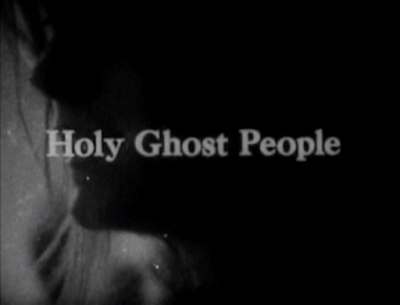Idly clicking through YouTube links last night, I happened upon this marvellous sermon by Mark Driscoll. It's part of the Doctrine: What Christians Should Believe series, the Mars Hill equivalent of an Alpha Course or Christianity Explored in the UK. I expected to disagree with Driscoll. What I didn't see coming, though, was his casual use of gross distortions and unequivocally false statements - what seemed, frankly, like barefaced lies.
Criticising Driscoll, of course, is shooting fish in a barrel. I'm more interested in the ways some of these arguments permeate evangelical culture in general, even outside the creationist minority. I've never been taught creationism, but the ideas of people like William Paley (he of the watchmaker analogy) and superficially more respectable varieties of creationism like the intelligent design of Michael Behe and William Dembski float around the subculture and inform the views of non-creationist evangelicals. Behind that is a desire to render the theory of evolution friendlier to an evangelical understanding of the Bible.
Driscoll, for example, says that it's acceptable for Christians to disagree on the subject of creation and evolution. He believes in a form of old-earth creationism in which God made the earth billions of years ago, but created human beings in six literal days about ten thousand years before the present. To argue for that perspective, Driscoll isn't entirely honest. Here are just some of the lyin' highlights of the 59-minute talk - by no means all, since like Driscoll himself I'm not keen on prattling on for twenty-five hours. Nor am I likely to notice all as a non-scientist; this was just the stuff I as an interested layman immediately picked up on:
23:49-26:00 Driscoll argues that while the earth may be old, human life on it is young. Homo sapiens, he says, is defined by agriculture and living in villages. Conflating the Neolithic Revolution (when humans who had previously been hunter-gatherers began to farm) and the rise of Homo sapiens allows him to claim that science and his reading of the Bible agree: humankind is about 10,000 years old. This, of course, is desperately false. In reality anatomically modern humans appear in the fossil record as early as 195,000 years ago. Other species in the genus Homo go back further still, to a total of 2.3-2.4 million years before present. What does Driscoll propose to do with those guys - reclassify them as apes, as old-school creationists do, or perhaps as slightly weird-looking people? Either way, pretending they don't exist won't wash.
28:31-29:13 Driscoll cites the full title of Darwin's seminal book, On the Origin of Species by Means of Natural Selection, or the Preservation of Favoured Races in the Struggle for Life. That 'races' bit, he says, refers to Darwin's belief that 'whites had out-evolved blacks and were superior'. And he gives a little smirk. Two points, then:
(a) The full text of the first edition is of course online. And hey, turns out that as you would expect in nineteenth-century usage, by 'race' Darwin means a variety within a species, not exclusively or even primarily human races in the sense of scientific racism. ('How many of those birds and insects
in North America and Europe, which differ very slightly from each other, have been ranked by one eminent naturalist as undoubted
species, and by another as varieties, or, as they are often called, as geographical races!... Several most experienced ornithologists consider our British red grouse as only a strongly-marked race of a Norwegian species, whereas the greater number rank it as an undoubted species peculiar to Great Britain.')
(b) The notion of 'whites... out-evolv[ing] blacks' simply makes no sense in a Darwinian framework. Evolution is not a teleological progression, as if an individual dutifully crossed evolutionary stages off a checklist on its way out of the primordial soup. You can't be 'more' or 'less' evolved in the abstract, only better or worse adapted to a particular environment - and that, too is a product of random mutation that may, if an individual is lucky, result in an improved chance of doing well in the environment. At times, mutations that render an individual bigger, more intelligent or faster may be advantageous; at other times - cold environments where there is little sustenance, say - being smaller, less intelligent and slower may prove favourable. Yes, we all enjoyed that episode of Star Trek: The Next Generation, but evolution does not work that way.
(b) The notion of 'whites... out-evolv[ing] blacks' simply makes no sense in a Darwinian framework. Evolution is not a teleological progression, as if an individual dutifully crossed evolutionary stages off a checklist on its way out of the primordial soup. You can't be 'more' or 'less' evolved in the abstract, only better or worse adapted to a particular environment - and that, too is a product of random mutation that may, if an individual is lucky, result in an improved chance of doing well in the environment. At times, mutations that render an individual bigger, more intelligent or faster may be advantageous; at other times - cold environments where there is little sustenance, say - being smaller, less intelligent and slower may prove favourable. Yes, we all enjoyed that episode of Star Trek: The Next Generation, but evolution does not work that way.
29:50-30:09 Christians, Driscoll says, reject not science but naturalism. The distinction relies on conflating philosophical naturalism (which declares there are no supernatural causes) and methodological naturalism (which ignores supernatural causes in the pursuit of science, because they are untestable). Christians can agree with the latter but generally not the former.
30:28-39:10 Driscoll identifies ten problems with 'atheistic evolution' (i.e. an account of the history of the universe that does not posit a supernatural creator). The scientific points are various kinds of hogwash, and I'll skip most of them as I don't want to be here forever.
33:52-34:28 This, though, I'll pick on. It's the standard creationist claim that there are no transitional forms in the fossil record. It just isn't true. Creationists, of course, will move the goalposts whenever a transitional fossil is discovered and set up ever more stringent criteria.
34:35-36:13 'Atheistic evolution assumes that the earth is eternal', so evolution contradicts the Big Bang. I don't even know what to do with that. Evolutionary biologists, atheist or otherwise, do not assume that the earth is eternal (scientists agree it is roughly 4.5 billion years old, and that life on earth originated about 3.7 billion years ago), and I have no idea where Driscoll got this claim from. It's simply bizarre.
34:35-36:13 'Atheistic evolution assumes that the earth is eternal', so evolution contradicts the Big Bang. I don't even know what to do with that. Evolutionary biologists, atheist or otherwise, do not assume that the earth is eternal (scientists agree it is roughly 4.5 billion years old, and that life on earth originated about 3.7 billion years ago), and I have no idea where Driscoll got this claim from. It's simply bizarre.
42:20-48:42 Here Driscoll lays out the dangerous alternative to biblical creation: pagan 'one-ism', the belief that everything is ultimately of one substance. This he blames explicitly for the LGBTQ movement, which he argues is about creating one gender rather than respecting distinctions inherent in creation. Driscoll has something of an obsession with pagan nature-worship, which he has previously detected in Avatar. As someone who's done postgraduate work on the medieval Christian theology of paganism, this is quite fascinating to me, but it doesn't make Driscoll's thoughts any less nonsensical. In queer theory the dissolution of the gender binary leads not to a single unified gender but to n genders. Similarly, I barely understand Driscoll's point about 'one religion', which I don't see anyone particularly striving for: isn't the trend, rather, away from Christian hegemony towards pluralism?
All in all, that's quite a lot of blatantly false statements from a man who, as a successful pastor, church planter and author, is clearly not stupid. Are we to assume Driscoll is simply lazy or ignorant, or is he lying? If these are good old-fashioned lies, they're feeble examples of the form. A visit to Wikipedia will disabuse anyone of most of Driscoll's notions. I'm not a scientist, but I've known several of the facts Driscoll gets wrong since I was about ten years old. How can he hope to convince adults?
But perhaps Driscoll isn't trying to tell carefully crafted lies. Early in the sermon, Driscoll 'explains' the fact that we have a two-day weekend instead of the Old Testament's single day of rest: '[W]hen it came to our nation's founding, they couldn't decide between the Jewish Sabbath of Saturday and the Christian Sabbath of Sunday..., so they gave you both.' I don't know if this myth is popular in the United States, but it's plainly untrue given union struggles for a shorter work week well into the twentieth century.
Why, then, does Driscoll get it wrong? Why does he speak ex cathedra on something he is plainly ignorant of, a mere footnote to his argument? Unless Driscoll enjoys deception, a lie is quite useless here. More likely he simply doesn't care, and opts not to do his research. Whether he's right on this point or not doesn't matter to him, or at least it matters far less than affecting an air of authority and bluffing his way through. He prefers making stuff up to the bother of reading up. And that seems to be the case for much of the sermon.
Driscoll fits Harry Frankfurt's definition of a bullshitter: 'He does not reject the authority of the truth, as the liar does, and oppose himself to it. He pays no attention to it at all. By virtue of this, bullshit is a greater enemy of the truth than lies are.' Driscoll casually says things he knows are probably not true because he sees the big picture: exuding confidence, knowledge and love for 'biblical truth' to sell a form of Christianity constructed specifically against other faiths and liberation movements. Research isn't really necessary, and facts can be hammered into shape or simply made up to fit that goal.
There is of course a particular irony to this. Driscoll is one of those evangelicals who forever insist on objective standards and denounce the 'undermining' of truth by a legion of foes (relativism, postmodernism, modernism, 'atheistic evolution', inclusivism, etc.). But here we see that Driscoll is not even doing the truth the courtesy of lying, which would at least be making an effort. He's just ignoring it, content with poorly researched, logically flawed, often flat-out false claims. What does it matter, right?
Driscoll's embrace of bullshit, then, shows that far from standing against the collapse of metanarratives he is actually profoundly influenced by it. As is evangelical culture as a whole: 'One response to this loss of confidence has been a retreat from the discipline required by dedication to the ideal of correctness to a quite different sort of discipline, which is imposed by pursuit of an alternative ideal of sincerity' (Frankfurt, emphasis in original). Sincerity as the next best thing to being right, the defence of one's views with appeals not to evidence but to the strength of one's belief: that helps explain a plethora of counterfactual narratives peddled by evangelicals. So Driscoll's fabrications are at least useful in understanding something of the subculture. But we don't need to let people like him claim they're 'standing up for truth'.










